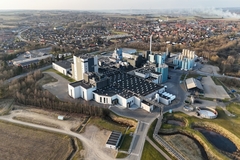
- Industry news
Industry news
- Category news
Category news
- Reports
- Key trends
- Multimedia
Multimedia
- Journal
- Events
- Suppliers
- Home
- Industry news
Industry news
- Category news
Category news
- Reports
- Key trends
- Multimedia
Multimedia
- Events
- Suppliers
EU Extends Timeframe for Aspartame Re-evaluation

09 May 2013 ---- EFSA and the European Commission have agreed to extend the timeframe for the Authority’s full re-evaluation of aspartame to allow sufficient time to consider and address feedback, including new information, resulting from the public consultation on its draft opinion.

From the comments received, experts on EFSA’s Scientific Panel on Food Additives and Nutrient Sources Added to Food (ANS Panel) have identified aspects of their draft opinion and key steps in their scientific approach that they would like to clarify further, including the expression of uncertainties, before finalising their conclusions. This will ensure that EFSA’s scientific advice fully integrates information received and that those with an interest in this work will be able to easily understand how the Panel derived its conclusions.
From 9 January to 15 February 2013, EFSA held an online public consultation on its draft Scientific Opinion on the re-evaluation of aspartame (E 951) as a food additive. On 9 April, the Authority wrapped up this process by holding a follow-up meeting to discuss the comments received. EFSA received over 200 comments on such issues as how EFSA’s experts select studies for its risk assessments, the safety of the metabolites of aspartame and how best to express uncertainties highlighted in the draft opinion.
On 8 January 2013, EFSA launched a public consultation on its draft Scientific Opinion on the re-evaluation of aspartame (E 951) as a food additive. All stakeholders and interested parties were invited to comment on the draft opinion through the online public consultation by 15 February 2013. ?Aspartame: EFSA consults on its first full risk assessment
Aspartame is a low-calorie, intense sweetener that is approximately 200 times sweeter than sucrose (table sugar). The re-evaluation of aspartame is part of the systematic re-evaluation of all food additives authorised in the EU prior to 20 January 2009. For the EU regulatory framework on food additives such as sweeteners and EFSA’s role in relation to aspartame.
While EFSA has reviewed new studies on aspartame in the past, this is the first full risk assessment of aspartame requested of EFSA and carried out by the Authority’s ANS Panel.
Supplier Ajinomoto responded by stressing that the facts about aspartame's composition and metabolism are not in question. Comments submitted in relation to the draft Opinion, published by EFSA in January, can be put in context by understanding that aspartame's components occur widely and in greater quantities in the diet.
“The review by EFSA of all of the science that supports the safety of aspartame is the most recent in a long line of reviews by regulatory authorities around the world, all of which have concluded that aspartame is safe. In Europe, where aspartame has a history of thirty years safe use, aspartame was reviewed and found to be safe by EFSA's predecessor the Scientific Committee on Food (SCF) in 1984, 1988, and 2002. In addition, EFSA reconfirmed the safety of aspartame in 2006, 2009, 2010 and 2011. The current review is part of the re-evaluation of all food additives being undertaken at the request of the European Commission.”
“Aspartame is unique in that it is the low calorie sweetener that tastes most like sugar. By providing the great sweet taste that people enjoy without the calories, aspartame enables food and beverage manufacturers to deliver against commitments to tackle the health challenges of overweight and obesity,” a statement concluded.










